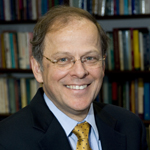Preventing disease and improving public health are the goals of a new division created at Washington University School of Medicine in St. Louis.
“Through our research and education efforts, we hope to translate research discoveries into policies that keep people healthier through prevention and improve quality and access to health care,” says Graham Colditz, MD, DrPh, division chief, deputy director of the Institute for Public Health and the Neiss-Gain Professor of Surgery.
The Division of Public Health Sciences, created as part of the medical school’s population health initiative, builds on relationships with the Siteman Cancer Center at Barnes-Jewish Hospital and Washington University School of Medicine and the university’s Institute for Public Health.

The division, within the Department of Surgery, is made up of 17 investigators who collaborate on projects that affect medical treatment and outcomes. Researchers are examining the impact of behaviors, communication, health screenings, treatments and the environment. They also study subjects ranging from cancer recurrence and weight control to mammogram access to doctor-patient communication.
The Division of Public Health Sciences also shares its disease prevention and health-communication research findings with the public. This has resulted in several initiatives to keep people in the St. Louis metropolitan area informed about ways they can stay healthy and prevent disease. The Your Disease Risk website helps individuals determine their personal risk of developing the five most significant diseases in the United States and get tips for preventing them.
In addition, the Siteman Cancer Center’s Program for Eliminating Cancer Disparities offers screening and patient education for breast, lung and colorectal cancers in medically underserved areas.
The division, which is made up of epidemiologists, population scientists and biostatisticians, also will provide a home for the Master of Population Health Sciences. This degree program is designed for clinicians and researchers with a medical or doctoral degree who seek training in population-based research methods. Students in a doctoral-level program also may enroll.
The degree program offers training in health-sciences research methods and population health. A major emphasis is on skills clinicians need to lead research programs, clinical departments and institutions.
More than 20 faculty members from the School of Medicine and the George Warren Brown School of Social Work will teach in the 10-month, full-time program.
“This is designed to give clinicians the skills to address the effectiveness and impact of clinical interventions to improve health in the population,” Colditz says.